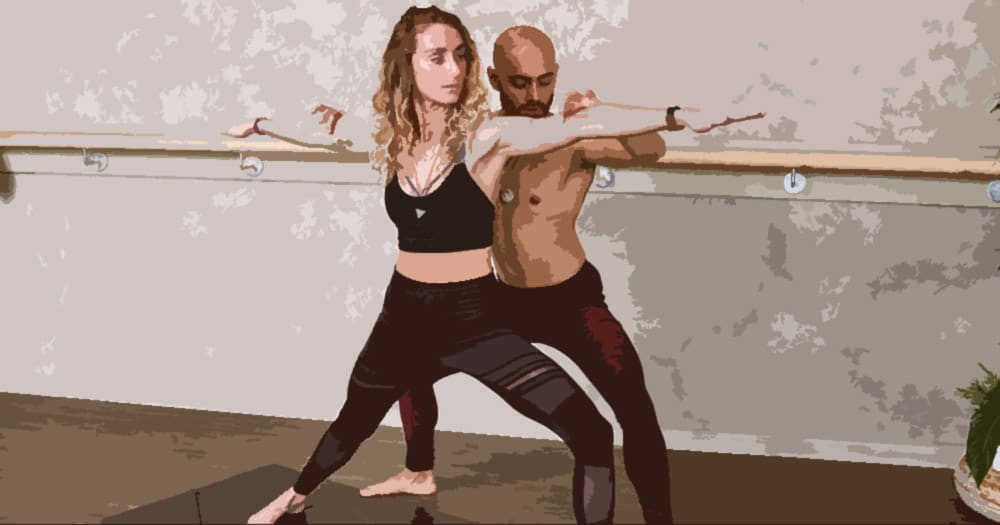Why Balance Your Exercise Types?

Achieving balance in your exercise profile is something we should aim for even though it can be difficult. With so many different types of exercise available now, no one can do everything, all the time. So, chances are that you’ve carved out an exercise niche for yourself.
WHO physical activity guidelines
At a minimum, a balanced routine includes three elements: regular aerobic activity for cardiovascular fitness, resistance training for strength and bone health, and mobility/balance work to support movement quality and reduce injury risk.
How Exercise Can Get Out of Balance
Maybe you’re a step-aerobics junkie, a dedicated runner, a tennis buff, or maybe you specialize in power lifting or boxing? What about the mind-body exercise craze? Are you a yoga-holic, or martial arts or Pilates maniac? Are you the one who shows up to 5 Spinning classes a week? Maybe you walk 5 km every single day, rain or snow.
It’s common to gravitate toward one or two types of exercise and stay there for years. Choosing a type of exercise you’re good at, or is most enjoyable, may be wise in the beginning phase of exercise. But, after a while, your body becomes imbalanced and your results level off.
Different Exercises, Different Results

Of course, doing different types of exercises will have different effects on your body and physiology. And it’s not only physical effects. Different types of exercise produce different mind/spirit responses as well.
Imagine how someone would feel after a Tai Chi class versus squash. One no better than the other, just different. … sculpting a different person if done routinely.
How do you feel after exercise? Refreshed? Exhausted? Empowered? Strong? Weak? Are you getting what you need?
Does your exercise help you let go or take more control? Is your exercise self-directed or directed by someone else?
Is your mind allowed to wander free during exercise or does it take concentration?
Many people find that reflecting on these factors changes how they experience their workouts and whether they feel supported or drained by them.
Getting Mental Balance in the Mix
For instance, if you’re a very flexible and/or introspective person and you gravitate toward yoga because you’re good at it, yoga will only make you more flexible and more introspective. It may not help you to develop you in other ways.
People who enjoy mind-body exercise sometimes explore Pilates as a different but related activity.
On the other hand, if you’re very inflexible and stiff, or if you have a difficult time slowing down (type A’s), yoga or Tai Chi would be a very wise choice, even though it may feel foreign or frustrating at first.
If you’ve been doing weight training forever and have not seen the muscle definition you’d like to see, consider adding a different training stimulus such as boxing or kickboxing for conditioning and athletic variety, while continuing progressive resistance training and nutrition strategies that support definition.
If you’re normally a control freak at work and/or at home with your family, choose a type of exercise that teaches you to let go. On the other hand, sometimes a good, hard sweat will loosen and relax you.
People who lack confidence often report feeling more empowered after activities such as weight training, martial arts or kickboxing.
Adjust the Mix as You Age
As you age, your needs change. You need strength and balance training more than ever as you age.
If you have been a serious runner for years, have a type A personality and now your knees are bothering you and your hamstrings are tight as a tennis racket, it’s clearly time for a change.
The addition of yoga, Pilates, or a dedicated stretch class to the running can improve flexibility and restore balance. Substituting water aerobics or rebounding (mini trampoline) for some of the running can ease pressure on the joints.
Exercise response is very individual. It’s best to tune in to yourself and know how YOU respond to various forms of exercise.
Strategic Exercise Balance
This is more complex than simply cross training to get variety. It’s about evaluating your body type, your age, your personality, your lifestyle, and your goals to make an exercise plan that will produce balance in your life on all levels (physical, mental, emotional, and spiritual).
Doing one or two types of exercise is generally fine for getting health benefits to decrease your risk of chronic disease.
Ideally, you want to achieve a supple body that looks great and is injury-free, a mind that is clear and focused, and a happy, open spirit. So re-evaluate your exercise program on an ongoing basis and make appropriate changes.
Too much of a good thing is too much. Balance your life. Balance your exercise.
